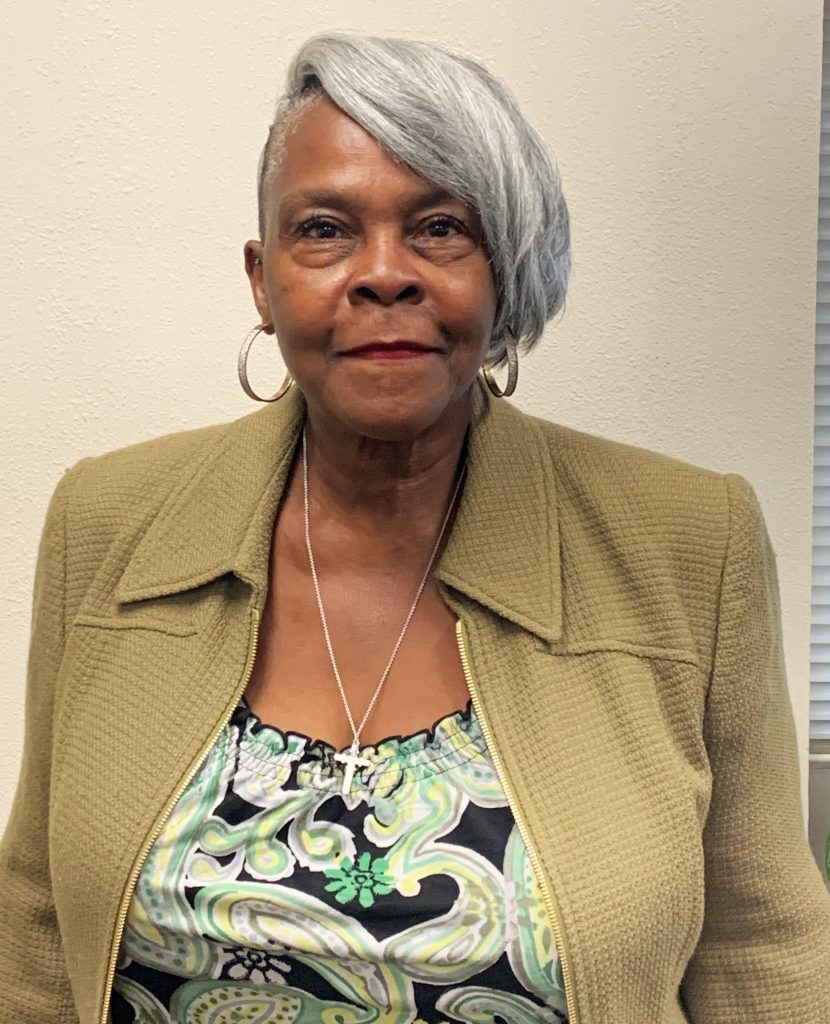
Velda Dobson-Davis, a longtime volunteer, has been retired from CDCR for a decade, but is still making a difference.
These days it’s common to see CDCR employees running rehabilitative programs, sharing their skills and expertise with the population. From art and fundraising to horse care and fitness, these employees are going above and beyond to engage the population in positive activities.
One of CDCR’s longest-serving volunteers spent more than 40 years with CDCR and continues to run programs in her retirement. Dobson-Davis believes that by giving back to others, our communities become more peaceful – whether that community is inside prison walls or out.
Assistant to officer to warden and beyond
While she technically retired in 2012, Dobson-Davis’ service with CDCR began in 1978 and continues today. Her CDCR corrections career began in 1978, as an Assistant Clerk at California Medical Facility (CMF) in Vacaville. While she had worked as a “matron” at a county jail in Florida when she was 18 years old, it wasn’t until 1982 that Dobson-Davis took her oath as a peace officer with CDCR. She transferred to San Quentin in 1984, promoting to sergeant in 1987 and correctional counselor I (CCI) in 1989.
Her path and outlook on corrections changed in 1990. Dobson-Davis became a certified substance abuse counselor through Sonoma State University. Her first group, Second to None, focused on trauma-informed care.
“At that time San Quentin was a Level IV prison,” Dobson-Davis remembered. “I did my first group in the West Block yard, under gun coverage during count. That was my introduction to the benefits of trauma-informed programs and the difference they can make in a person’s life.”
It was the opportunity she needed to understand that she had a gift to give. That first group was one of many more to come.
“It was life-changing for me,” she shared. “That’s what made me realize that at some point in my life, I was supposed to give back in this way.”
Continues to promote
Dobson-Davis’ CDCR career took her to Deuel Vocational Institution in 1994. In 1995 she promoted to Correctional Counselor II and then Classification & Parole Representative (C&PR) at Central California Women’s Facility (CCWF). She worked as a C&PR and Correctional Counselor III at the now-deactivated Northern California Women’s Facility, California State Prison-Solano, and back at San Quentin. In 2004, Dobson-Davis arrived at CDCR Headquarters to serve as a Captain. When CDCR began the Female Offender Programs and Services (FOPS) division in 2005, she was hired as an Associate Warden in the program.
Her experience working with the female population made her the perfect fit to serve on the team that converted Valley State Prison for Women into Valley State Prison (VSP), a male facility. As Chief Deputy Warden in 2012, Dobson-Davis used her correctional experience and communication skills to help the women moving to CCWF understand that while this was a big change, CDCR and FOPS were working to ensure the transition was smooth and that their rehabilitative programs would continue.
“One of the ladies who moved said to me, ‘You didn’t abandon us,'” Dobson-Davis remembers. “That word resonated with me. I know many women experience that in their lives as a source of trauma.”
Dobson-Davis doesn’t slow down in retirement
Dobson-Davis “retired” in 2012, but soon returned as a Retired Annuitant to assist CDCR in developing a program for men convicted of sex offenses. In 2014, she became the program coordinator for Beyond Violence, a trauma-informed program in which incarcerated people are trained to become program facilitators.
Her work goes beyond Beyond Violence to include starting the Healing Trauma program for people new to state prison. In 2019 she began Felons Against Distracted and Drunk Driving (FADDD) at CCWF, which focuses on educating about the risks of dangerous driving. That program was so successful at CCWF that Dobson-Davis started the same program at San Quentin in 2019. Both programs have created powerful videos in which incarcerated people tell their stories about the costs of drinking and driving.
“Velda is extremely dedicated to the population,” said CCWF Warden M. Pallares. “She is a person who truly cares about what she is doing.”
Various rehabilitative programs
Dobson-Davis is certified to offer programs focused on domestic violence, emotional neglect, and parenting. She has worked with people condemned to death. Also, she currently serves more than 50 people who paroled after life sentences through her Continuity of Care program, that teaches what Dobson-Davis calls the “Prescription for Change” in developing positive coping processes.
“Here we are, 10 years after retirement, and I am still working in a prison, volunteering my service and doing what I call ministry,” she said.
Outside of her prison work Dobson-Davis is a pastor and teaches Bible study for homeless community members. Once a month, she offers grief counseling and prayer counseling for the community. She is married and has four children, 26 grandchildren, and three great-grandchildren.
“When I retired I felt I had more to give, and there was more work to be done,” she said. “I am so grateful to be allowed the opportunity by the Warden and his staff to come in and be able to offer these services to the women.”
Read more rehabilitation stories.
Follow CDCR on YouTube, Facebook, X (formerly Twitter). Listen to the CDCR Unlocked podcast.